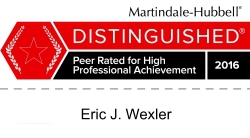
2015 Year End Tax Planning Tips
- Review your investment portfolio.
If you are in the 15% tax bracket, you will pay 0% on long-term capital gains. Taxpayers in the top 39.6% bracket may want to harvest losses in order to offset investment gains, which may be taxed as high as 23.8%. Beware of selling shares to lock in a loss with the intention of buying them back right away. The IRS “wash sale” rule prohibits you from claiming the loss if you buy the same or a “substantially identical” investment within 30 days of the sale.
- Pay college costs early.
Next semester's bill may not be due until January, but it might be worthwhile to pay it before December 31 and possibly claim the American Opportunity Tax Credit on this year's tax return. The Credit is worth up to $2,500 with up to 40% “refundable,” which means you could get as much as $1,000 back as a tax refund even if you don't owe any taxes to begin with.
- Convert to a Roth IRA.
If you have little or no taxable income for 2015, you can still save taxes in future years by converting a regular IRA to a Roth IRA. If you believe your tax rate is going to rise in the future, converting to a Roth can save you money in the long run. Converting to a Roth IRA will allow you to pay tax now at the lower rate, and then take tax-free withdrawals when you will presumably be in a higher tax bracket. The best news is that, through October 15, 2016, you will have the option to “change your mind” and undo the conversion.
- Boost your withholding.
If you have both wage and business income and are afraid that you may owe an underpayment penalty, boost the taxes withheld from your last few paychecks rather than trying to make up the shortfall with a final estimated quarterly tax payment. Taxes that are withheld are treated as if they were paid evenly throughout the year.
- Plan your itemized deductions.
Many expenses can be deducted only if they exceed a certain percentage of your Adjusted Gross Income (AGI). “Bunching” deductible expenses into one year can help get over these AGI floors and reduce your overall tax bill. Consider bunching your non-urgent medical procedures, professional fees, and unreimbursed business expenses such as travel and vehicle costs. If you expect your income to drop next year, deductions will most likely be more valuable this year and you may want to pay certain deductible expenses before December 31. On the other hand, if you expect your income to increase next year, you may want to defer these expenses because they will be more valuable to you next year.
- Sell ISO stock.
If you have exercised an Incentive Stock Option (ISO) during 2015, the difference in the value of the stock on the date of exercise and the amount paid for the stock (the “spread”) is taxable for Alternative Minimum Tax (AMT) purposes. If the value of the stock has declined substantially since the date of exercise, the exercise of the ISO could create a large AMT tax bill. If the stock is sold before December 31, 2015, the income from the ISO exercise, for AMT purposes, cannot exceed the actual income from the sale.
- Give appreciated securities to charity.
If you plan to make a significant gift to charity before December 31, you may want to give long-term appreciated securities instead of cash. Doing so will allow a charitable deduction for the fair market value of the donation, but you will escape the capital gains tax. By the same token, do not donate depreciated property. Instead, sell it first and then donate the proceeds to charity so you can take the capital loss as well as the charitable deduction.
- Give to non-charities.
You may gift up to $14,000 cash to an unlimited number of individuals during the year without filing a gift-tax return. If you are married, you and your spouse may gift up to $28,000 per recipient. If both you and the recipient are married, you may gift “couple to couple” in the amount of $56,000. For additional tax advantage, consider gifting to a 529 account.
- Shore up your 401(k).
Contributions to your 401(k) or similar employer-based retirement plan (other than a Roth) are excluded from your income, lowering your tax bill. If you are not on track to maximize your contributions for 2015, you may direct extra dollars to your retirement plan during your last few pay periods. For 2015, workers may contribute up to $18,000 to employer-based plans. Workers 50 and older may contribute up to $24,000.
- Spend down your flexible spending account (FSA).
IRS changed the rules last year so employers could allow people to carry over up to $500 in their flexible spending accounts (FSA) from one year to the next. Companies may choose to make this change but are not required to. If your employer did not make the change and does not offer a grace period, it is time to spend down that account. Keep in mind that there are restrictions on what you may purchase with FSA funds.
*This list is intended to provide general financial information. Everyone’s tax situation is different. Please contact us if you have any questions regarding the above or how it applies to your situation in particular.

